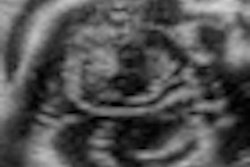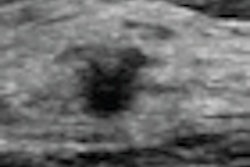Serial compression ultrasound and Doppler imaging can reliably and safely exclude deep vein thrombosis (DVT) in pregnant women who are suspected of having the condition, according to research published online on Monday in the Canadian Medical Association Journal.
A group led by Dr. Wee-Shian Chan, now at BC Women's Hospital and Health Centre, found that serial compression ultrasound with Doppler imaging of the iliac vein yielded sensitivity of 94.1% and a negative predictive value of 99.5% for DVT in pregnant women suspected of having the condition.
"Our study shows that serial compression ultrasonographic studies with iliac vein visualization performed over a seven-day period can reliably exclude deep vein thrombosis in symptomatic pregnant women, and that it is likely safe to withhold anticoagulation in women with negative imaging results," the authors wrote.
The researchers evaluated 221 consecutive pregnant women who presented with suspected DVT in order to examine the safety of withholding anticoagulation following negative serial compression ultrasonography and iliac vein imaging (CMAJ, January 14, 2013).
Those women who had negative initial imaging results received serial testing on two occasions over the next seven days. Women who were not diagnosed with DVT were followed for a minimum of three months to track any development of symptomatic DVT or pulmonary embolism.
Of the 221 study participants, 16 (7.2%) were diagnosed by initial compression ultrasound and Doppler studies. No patients were found to have DVT on serial testing.
One case was missed: A patient with normal serial testing was diagnosed with a pulmonary embolism seven weeks later.
Overall, the sensitivity of serial compression ultrasound with Doppler imaging was 94.1% (95% confidence interval: 69.2%-99.7%), while the negative predictive value was 99.5% (95% confidence interval: 96.9%-100%). The negative likelihood ratio was 0.068 (95% confidence interval: 0.01-0.39).
"Our study highlights the importance of iliac vein visualization in symptomatic pregnant women," the authors wrote.
The authors also pointed out that it's unclear whether serial testing over a seven-day period is necessary, since all of the cases of DVT were identified by initial imaging with compression ultrasound and Doppler studies.
Regarding future work aimed at improving the accuracy and reliability of noninvasive testing for excluding DVT in symptomatic pregnant women, the researchers said they would evaluate new diagnostic strategies using D-dimer testing and clinical prediction rules combined with ultrasound.



















